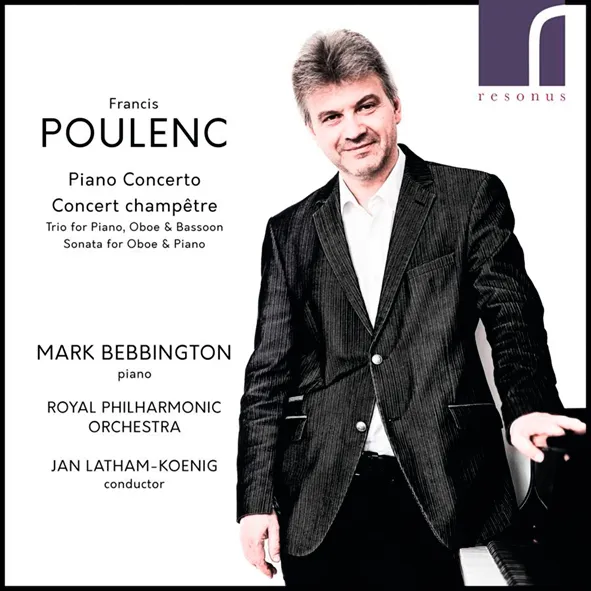
Poulenc Piano Concerto; Trio for Piano, Oboe & Bassoon; Concert champêtre; Sonata for Oboe and Piano Mark Bebbington (piano), John Roberts (oboe), Jonathan Davies (bassoon); Royal Philharmonic Orchestra/Jan Latham-Koenig Resonus RES10256 72.32 mins
Mark Bebbington’s technique is not in doubt and in the Concerto he despatches the fluent piano writing with aplomb. Poulenc dubbed this his ‘flat cap concerto’, intending it to shock the Sibelius-loving Protestants in the USA, which it certainly did; so nuance here doesn’t count for much.
Elsewhere, though, Bebbington’s cavalier way with the scores is hard to excuse. In both the Trio with oboe and bassoon and in the Concert champêtre, he misunderstands the opening paragraphs which are modern, Stravinskified takes on the French overture and Louis XIV’s Versailles. In the Trio, the piano is simply too quiet: in the Concert, Bebbington introduces a diminuendo which entirely nullifies Poulenc’s boldly declarative message. At fig. 10 in the central movement of the latter he pedals through the phrase, so we hear an unwanted D in the final chord. The Oboe Sonata fares somewhat better, but I miss the pp/mf contrast in bar seven and, at the end of that first movement, Poulenc no doubt thought that in writing ‘strictement en mesure’ (strictly in time) he was ensuring compliance from players.
Balance between piano and orchestra is not always perfect, with the former sometimes obscuring orchestral detail. One particularly unhappy moment is provided by the timpani in the ‘tragique’ section of Concert champêtre where the minor thirds, which should herald their appearance in the following section, are no more than an explosion of noise. Roger Nichols